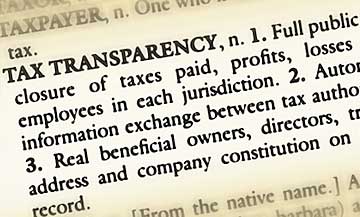 Deficits accumulated over the past decades by governments worldwide have gradually placed them under great pressure. In recent years, investors, civil society organizations, the media and the civil society itself have been requiring greater tax transparency.
Deficits accumulated over the past decades by governments worldwide have gradually placed them under great pressure. In recent years, investors, civil society organizations, the media and the civil society itself have been requiring greater tax transparency.
Recent scandals involving tax havens, such as the Panama Papers leak, shed light on non-complying companies. Individuals and companies whose business strategy involves creating international structures may now be exposed to higher reputational and legal risks. Setting up an international structure in order to save profits requires thought-out tax planning, allowing legal entities and natural persons behind them to be legally protected.
Companies are being increasingly challenged to comply with both national and international ever-evolving tax rules as well as to provide information on their corporate tax management guidelines and policies. Various international treaties and intergovernmental agreements have been signed over the past years to ensure that common tools could be used in order to avoid harmful tax practices and strategies, allowing fair competition between countries.
Pursuant to this global tax transparency movement, the Organization for Economic Cooperation and Development (OECD), an important institution in the international tax scene, which includes all Nordic countries, has been providing relevant guidance related to global tax matters, opening the way to unexampled national tax measures.
In Brazil, the government has signed many international treaties, showing goodwill in conforming to the international tax transparency tendency. Among the measures adopted, Brazilian Legislative Decree no. 105/2016 was signed on April 15, 2016, implementing the 2011 OECD Multilateral Convention on Mutual Administrative Assistance in Tax Matters.
The OECD Convention, which promotes cooperation in tax matters at a multilateral level, constrains parties to exchange information on request. The measures established in the Convention comprehend share of information, including simultaneous tax audits and participation in tax audits carried out abroad, collection of tax credits and notification of illegal practices.
According to Decree no. 105/2016, Brazilian tax authorities are now entitled to receive tax information originated in over one hundred countries, including information on favored taxation, as well as reports on multinational groups (“Country by Country Reporting”), which includes information on global operations conducted by such groups, providing that they own a subsidiary in Brazil.
Despite the measures established in the OECD Convention and Legislative Decree no. 105/2016 to ensure international tax transparency and information sharing between Brazil and signatory countries, allowing for all signatories to collect information on Brazilian tax residents, the Brazilian tax authorities recently adopted Normative Instruction no. 1.634/2016, which requires locally operating companies to provide identification for their local or international shareholders and shareholders’ shareholders (legal entities), as well as for the natural persons that may be deemed final beneficiaries, encompassing at large the corporate interest chain, whether within a holding company structure or not.
Normative Instruction no. 1.634/2016 goes beyond the measures imposed by the OECD Convention and Legislative Decree no. 105/2016, as well as current legislation. Such excess could be denounced in court, so as to maintain a competitive and viable tax legal environment for Brazilian companies while complying with global tax transparency rules.
Victoria Schulsinger was an associate at Pacheco Neto Sanden Teisseire Law Firm.
Daniel Miotto was Partner at Pacheco Neto Sanden Teisseire Law Firm.



